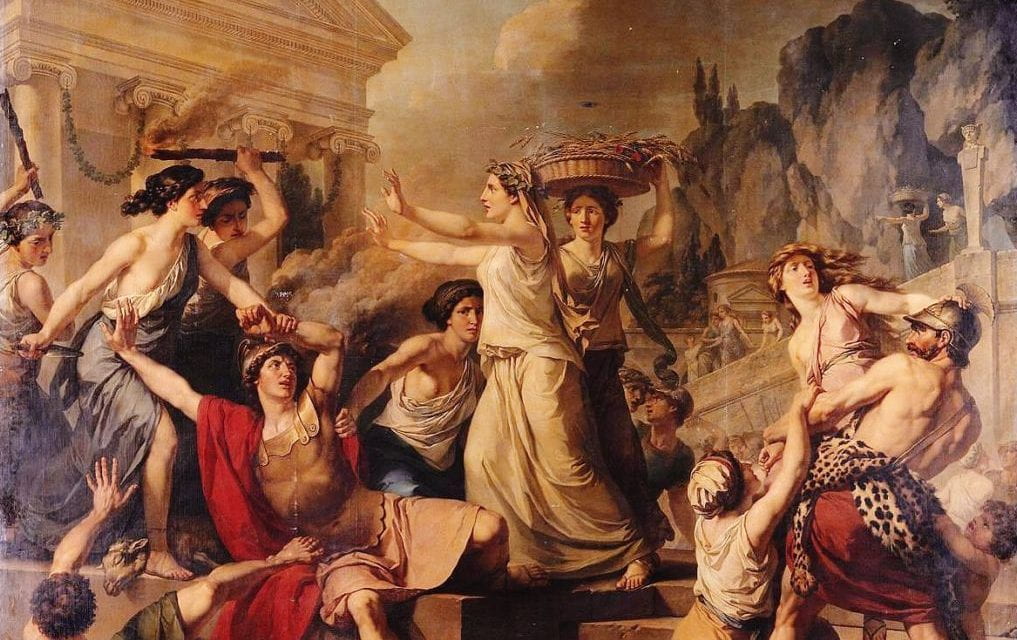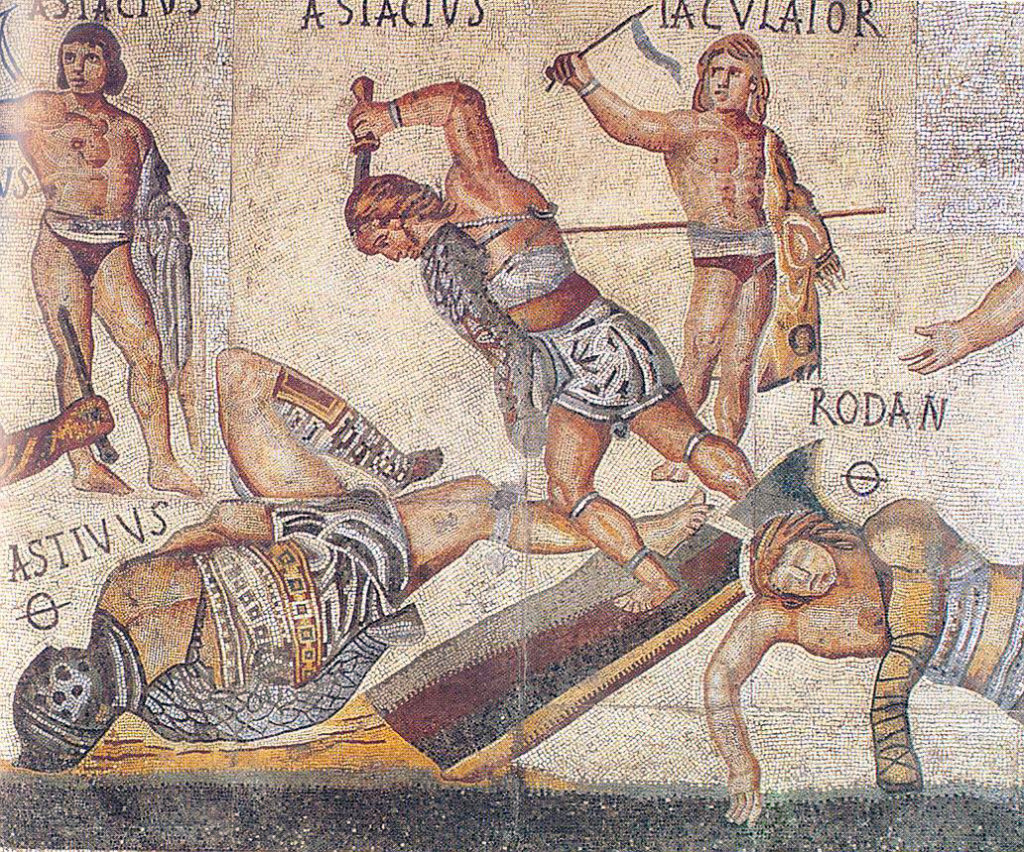Last updated on January 27th, 2023 at 04:53 am
A famous saying attributed to Gorgo, the daughter of King Cleomenes I, a fifth-century BC king of Sparta. When asked by a woman from Attica, the region of eastern Greece dominated by the city of Athens, why Spartan women were the only ones in all of Greece who held such power within their polis or city-state, Gorgo replied, “Because we are the only ones who give birth to men.”
Her statement was meant to reflect the military prowess of Spartan warriors but has usually been cited more as evidence of the independence and strength of Sparta’s women during the Classical period of Greek history.
Here we explore an element of their independence, specifically why Spartan women were so wealthy by comparison with their counterparts elsewhere in the Hellenistic world between the sixth and fourth centuries BC.
Liberty in Sparta
Spartan women’s wealth was intimately connected to the great liberty that they enjoyed within Sparta. This was a city-state that was exclusively geared toward warfare.
Spartan citizens were trained from a young age in schools which were effectively military barracks, to become the most efficient warriors in the entire Greek world.
These Homoioi, as the Spartan citizenry was known, continued to dine in military barracks throughout their adult lives and earned a fearsome reputation as the most fearless warriors in the world, one which had persevered down to the present day.
It was, after all, just 300 Spartan warriors who held off the Persian army’s advance southwards into Greece at Thermopylae in 480 BC.

Jean-Jacques-François Le Barbier
Spart Women Enjoyed a lot of Freedom
Spartan women were afforded much greater liberties than women in other Greek city-states in keeping with this warrior bent. Their primary role was to produce and rear strong future warriors. As such, Spartan women were expected to exercise and maintain their physical fitness the same way as their male peers.
Moreover, because Spartan men were often absent from Sparta on military service, including the city state’s two kings, Spartan women were often given a major role in the governance of their country.
In tandem, Spartan women were allowed to own extensive property. This was nearly always in the shape of land or enslaved people.
The Spartan constitution developed by its legendary lawgiver, Lycurgus, stipulated that riches of a traditional kind were to be avoided to prevent Sparta’s warriors from becoming corrupted by gold, silver, and other riches.
Spartan women’s wealth was based on this societal structure. Women were given charge of the property to allow them to manage it when their husbands, fathers, and sons were absent on the battlefield. This process became particularly acute in the fifth century BC when the war occurred, first against Argos in the 490s BC.
The Persians in 480 BC, followed by numerous more minor conflicts in the mid-century before the climactic Peloponnesian War with Athens broke out in 431 BC and lasted 27 years.
Spartan men spent more and more time away from home, and as more and more of its male citizens died in combat, Spartan women found increasing amounts of land under their ownership.
Moreover, this occurred when the Spartan state was becoming richer in general as it found itself at the head of a huge alliance of city-states that paid tribute to Sparta.
Slavery in Sparta
The structure of Spartan society facilitated this wealth accumulation in other ways. Spartan society consisted of little more than 30,000 full citizens at its height.
Most of the population of Sparta and the surrounding region of Lacedaemonia consisted of subject people called the Helots, which Sparta had all but enslaved in the course of the seventh and sixth centuries BC.
With this massive base of free labor, Spartan women did not have to engage in the types of domestic activity which women elsewhere in Greece had to.
Instead, they managed Helots, who were effectively property and contributed to their wealth. Thus, Spartan women were able to acquire wealth in more ways than one due to how The fifth century BC structured spartan society.
How did the rest of the Greek world view Sparta?
This system often became censored amongst Greeks from elsewhere in the Hellenistic world. For instance, the highly chauvinistic fourth-century BC polymath, Aristotle, attributed much of the decline of the Spartan state to the economic power of Spartan women.
In his Politics, he asserted that “nearly two-fifths of the whole area of the country is owned by women, because of the number of women who inherit estates and the practice of giving large dowries.”

He suggested that this had led to the rapid decline of the Spartan state in the fourth century after it had briefly dominated the world of the Eastern Mediterranean, even launching an invasion of the Persian Empire in the 390s BC. Aristotle’s criticisms were completely unfounded.
In reality, the Spartan state had declined to owe to its wars, which had depleted the number of Spartan warriors over time. The city-state had a much smaller population base than other city-states such as Athens, Thebes, or Corinth.
As this occurred, Spartan women necessarily increased their share of Spartan land and wealth again, as fewer male Homoioi left to own it. Ultimately this situation, combined with the rise of the Kingdom of Macedon to the north during the mid-fourth century BC, brought about the decline and fall of Sparta as a major power.
Sources
Paul Cartledge, The Spartans: An Epic History (Second Edition, London, 2013).
Donal Kagan, The Peloponnesian War: Athens and Sparta in Savage Conflict, 431–404 BC (New York, 2005); Paul A. Rahe, The Grand Strategy of Classical Sparta: The Persian Challenge (Yale, 2017).
James Redfield, ‘The Women of Sparta’, in The Classical Journal, Vol. 73 (1977/1978), pp. 146–161; Paul Cartledge, ‘Spartan Wives: Liberation or Licence?’, in Classical Quarterly, New Series, Vol. 31, No. 1 (1981), pp. 84–105.
Nathan Decety, ‘When valor isn’t always superior to numbers: Homoioi oliganthrôpia caused by attrition in incessant warfare’, in Klio, Vol. 100, No. 3 (2018), pp. 626–666.

